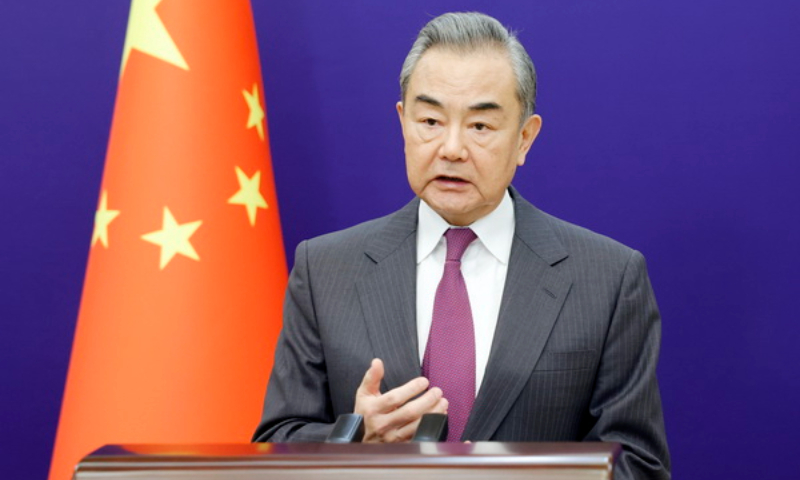China, PNG to speed up cooperation

Chinese Foreign Minister Wang Yi wrapped up his visit to Papua New Guinea (PNG) with a meeting with Prime Minister James Marape, confirming mutual interests of speeding up cooperation in broad fields, which analysts said will inject more vitality into the South Pacific region.
"The mutually beneficial cooperation between the two countries has been expanding and deepening, providing a steady stream of impetus for their respective development and revitalization... and in the process of PNG's development, China will be your most reliable partner," Wang told Marape on Sunday.
Chinese observers noted that the productive discussions between the two sides highlight the warmer ties between the island country and China. They cautioned against the US's attempts to stir discord between China and PNG, emphasizing that the tangible benefits derived from partnering with China in the region cannot be overlooked by local government and the people.
The two countries have drawn up Belt and Road cooperation plans and established a working mechanism. Both sides need to implement them one by one and advance them in a timely manner to ensure that the results of the cooperation will be tangible as soon as possible and bring benefits to the PNG people, Wang said.
China is ready to maintain high-level exchanges with PNG and launch free trade agreement (FTA) negotiations as soon as possible, the Chinese foreign minister said.
For the PNG side, the Pacific island country's foreign minister said that PNG is committed to promoting the development of bilateral relations to achieve greater results.
Bilateral cooperation has yielded great results and has very solid foundations, Chen Hong, executive director at the Asia Pacific Studies Center of East China Normal University, told the Global Times on Sunday, expressing his optimism toward finalizing the FTA agreement in the future.
The signing of an FTA would be beneficial to both sides, increasing China's imports from the island country, ranging from agricultural products to iron structure and telecommunication products, and at the same time, boosting the PNG economy, Chen noted. "Though it is the largest country in the region, PNG's economy has been suffering from an unbalanced economic layout due to a long history of colonization. But in just years of cooperation with China, the actual changes in PNG is apparent."
If an FTA agreement is reached, it is expected to drive and empower the economic development of the entire region, Chinese observers noted.
Wang emphasized that China's assistance to Pacific island countries has always been free of political conditions and impositions, and China has never issued "blank checks."
However, Chinese cooperation and assistance with South Pacific island countries were hyped up by the US. Yu Lei, chief research fellow at the Research Center for Pacific Island Countries of Liaocheng University, told the Global Times that the primary reason for the unease among Western countries, led by the US, stems from the deepening and accelerated scope of cooperation between China and the regional countries, Yu noted.
For example, in the Solomon Islands election, the US and others continuously list infrastructure projects involving China's cooperation as creating a "debt trap" and "resource plundering." The US believes the significant foundational effects generated by the Belt and Road Initiative pose a serious threat to Western interests and political influence in this region.
Chen pointed that placing the Pacific family as a strategic anti-China bloc serves US' Indo-Pacific strategy. This might include using PNG as a military base to contain China.
But Chinese observers underscored that sowing discord over cooperation between China and PNG has no foundation whatsoever and cannot deceive people in the region. "Cooperation between China and South Pacific island nations has brought tangible benefits to the region, benefits that any rational government and people would not ignore," Chen noted.
The South Pacific region should not become an arena of big power rivalry, and no country should treat the island countries as its "backyard," or engage in zero-sum competition and exclusive arrangements, Wang said in a meeting with PNG Foreign Minister Justin Tkachenko.